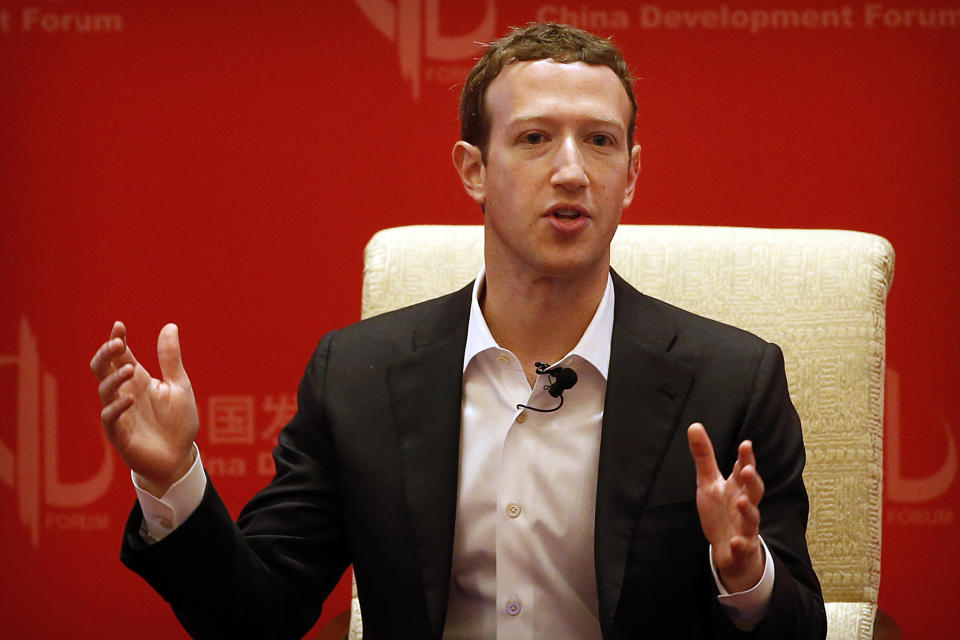How entrepreneurs are bridging the gap between the world's two Internets

SHANGHAI, China — The internet links the entire world creating all sorts of global opportunities for business, right? Not exactly. Access to the web is suppressed in many countries such as Pakistan, Russia, Turkey, North Korea, Cuba, Iran and Saudi Arabia.
But even more significant is that there are actually two huge internet ecosystems that exist almost as parallel universes. I’m talking about the web in China and the web in the free world, meaning of course the US and much of Europe, etc. And bridging that gap is particularly vexing for entrepreneurs who work on the border between the two.
Andy Huang is CEO of OTVCloud, a company that looks to connect TV watching to the web is working on it. “TV viewing is in decline everywhere,” notes Huang, who worked as an engineering executive at Cisco and Scientific Atlanta, “particularly for younger people.” Huang clicks on a slide at his presentation at the NABSHOW Shanghai, which shows viewership time spent by 18-24 year olds falling 42% from 2010 to 2016.
But Huang sees that drop as a business opportunity for his company, which looks to connect TV watching to social media and make content shareable on social media. His users would be able to offload real-time clips from shows and then send them to their friends anywhere in the world on any device. It’s a big, ambitious plan and of course Huang would need buy-in from TV networks. He also needs global social media. Huang’s presentation was based on customers using WeChat, China’s giant messaging platform. He also suggested users could tap into Line, another messaging app wildly popular in Taiwan, but not so much on the mainland. Facebook’s logo was on his screen too, but Facebook has been banned in China by the government.
In other words because of the bifurcated web, Huang’s business plan will face challenges if he hopes to make his company truly global.
Travel around China as a tourist or a businessperson and you pretty quickly notice something huge (besides the traffic and the millions of people), and that is this is a culture addicted to mobile phones. Not so different from the US you would say correctly—except for one thing. And that is the apps they use are not the same brands in the West. Many apps have the same functionality, like Youku (like YouTube), Weibo (social media) and QQ (messaging), and now have hundreds of millions of users. And the aforementioned WeChat, China’s No. 1 app, is closing in on a billion users.
When it comes to functionality and capability, by the way, Chinese social media actually has a leg up on the West, especially in terms of shopping, payments and voice calling on apps. “I used to say that Chinese social media was 10 years ahead of Western apps,” says Jennifer Schwerin, who heads up Tadaa, an independent video production company in China. Schwerin, who’s lived in Beijing for 20 years and has done work for MTV and other Western media companies, says the gap is closing but still noticeable, and that social is still probably more important to young Chinese consumers than elsewhere. “If your media in China doesn’t have social media at its core it will have disadvantage.”

But most of us in the US just don’t see or use these Chinese apps even though many have English language capability. Of course the reason for this dual internet world is that the Chinese government blocks and/or censors Western social media platforms like Facebook (FB) and Twitter (TWTR). But it’s a bit more complicated and one-sided even because Chinese exist outside of China—albeit most of their users are Chinese expats, tourists, or of Chinese descent. Meanwhile Facebook for one would love to be in China, and CEO Mark Zuckerberg, who speaks Mandarin, has been working Chinese officials at the highest levels, including China President Xi Jinping. Facebook—with 1.57 billion users worldwide—of course sees China’s population of 1.3 billion as a huge untapped market.
Recently The New York Times reported that Facebook has “developed software to suppress posts from appearing in people’s news feeds in specific geographic areas,” and endeavor said to undertaken to help the company enter China.”
All of this raises a number of questions: Can China and Facebook find a middle ground, meaning for instance, can Facebook swallow the Chinese government blocking stories that are say negative about the Chinese president? (The Times article notes that Facebook already “has restricted content in other countries before, such as Pakistan, Russia and Turkey…”) And if so, can Facebook find a way to have, ironically, two internets, one for its Chinese users and one for non-Chinese users? And if the answer to those two questions were yes, would this make Facebook less palatable to users? In other words, would these moves outrage customers in the free world, making them quit the network?
Another question is, why would Chinese consumers even want Facebook if they have so many social media platforms already? Well, one answer might be that Facebook would connect them to the world, to its 1.57 billion users, and to the free expression on its site. But of course it’s the latter that the Chinese government is so concerned about.
Watching how these two internets play off each other and evolve independently and in concert will be a story to watch over the coming years, particularly as it as reflection of the greater Chinese/US relationship.
Andy Serwer is editor-in-chief of Yahoo Finance.
